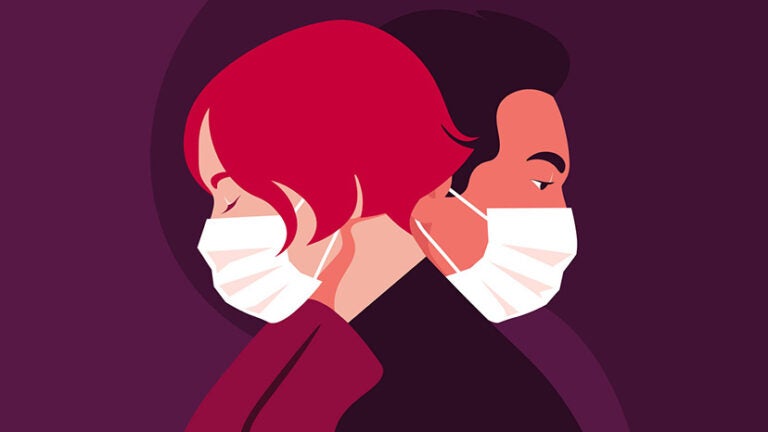
Tips for maintaining motivation and mental energy as the pandemic drags on
The end of the pandemic glimmers on the horizon. Deaths and new COVID cases have declined. Many people have been working at home for months instead of driving long commutes. So why do they feel so tired?
Experts at USC Dornsife College of Letters, Arts and Sciences and their USC colleagues point to one full year of stress brought on by the pandemic — with potentially months to go.
In order to thrive, we have to “put on our own oxygen mask first,” said Rita Burke, assistant professor of clinical preventive medicine at Keck School of Medicine of USC. “It’s critically important during this time to make sure we make time to take care of ourselves, not just those around us.”
“Zoom fatigue is real,” said Quade French, a licensed clinical psychologist and consultant at USC Campus Wellbeing and Education. “We are putting so much more psychological energy into processing and being present in conversations. We are taxing our minds like never before.”
Here’s a sampling of advice to help you make it through the marathon.
Manage expectations, and pauses are important
The pandemic can bring loss, grief and suffering, but it can also bring gratitude, meaning and new insights, said Kelly Greco, a licensed clinical psychologist with USC Student Health.
“Focus on your daily realistic goals, manage expectations and focus on what you did accomplish and your strengths,” she said. “If things didn’t go your way on a particular day, focus on what you learned, use your resources and make different decisions.”
Supervisors can help their team members stay productive by giving them the time and space to recover fully after hours.

“Employees cannot outrun burnout if their work environment does not support them,” said Patricia Grabarek, a lecturer in the Master of Science in Applied Psychology program at USC Dornsife. “Companies need to understand the challenges employees are currently facing. Without creating a positive and thriving workplace, companies cannot expect employees to be healthy and productive.
“After work each evening, employees should focus on recovery techniques, including disconnecting from work fully, spending time relaxing and finding a hobby where they can gain mastery. Mastery has been shown in the research to really help employees recharge. Employees can find an activity that is not work-related to learn a new skill — like cooking, learning a new language or practicing yoga.”
High-stress moments don’t mean bad habits win out
If you are feeling guilty about being sedentary, lacking motivation or eating too much during the pandemic, you may be failing to appreciate the good habits that are a part of your day.

“It’s not true that we abandon good habits in times of stress and adopt bad habits such as stress eating,” said Wendy Wood, Provost Professor of Psychology and Business at USC Dornsife. Wood, who holds a joint appointment at the USC Marshall School of Business, is an expert in behavioral change, habit formation, healthy lifestyles and habits.
“We have shown in our research that people fall back on good and bad habits when stressed and overwhelmed. The reason is that stress and pressure reduce our capacity to make decisions, so we are more likely to repeat automated, habitual patterns that require little thought. People believe they act on bad habits more when stressed. This is probably because we don’t notice our good habits as much as our bad ones, so we don’t recognize that we are also repeating good habits when stressed.”